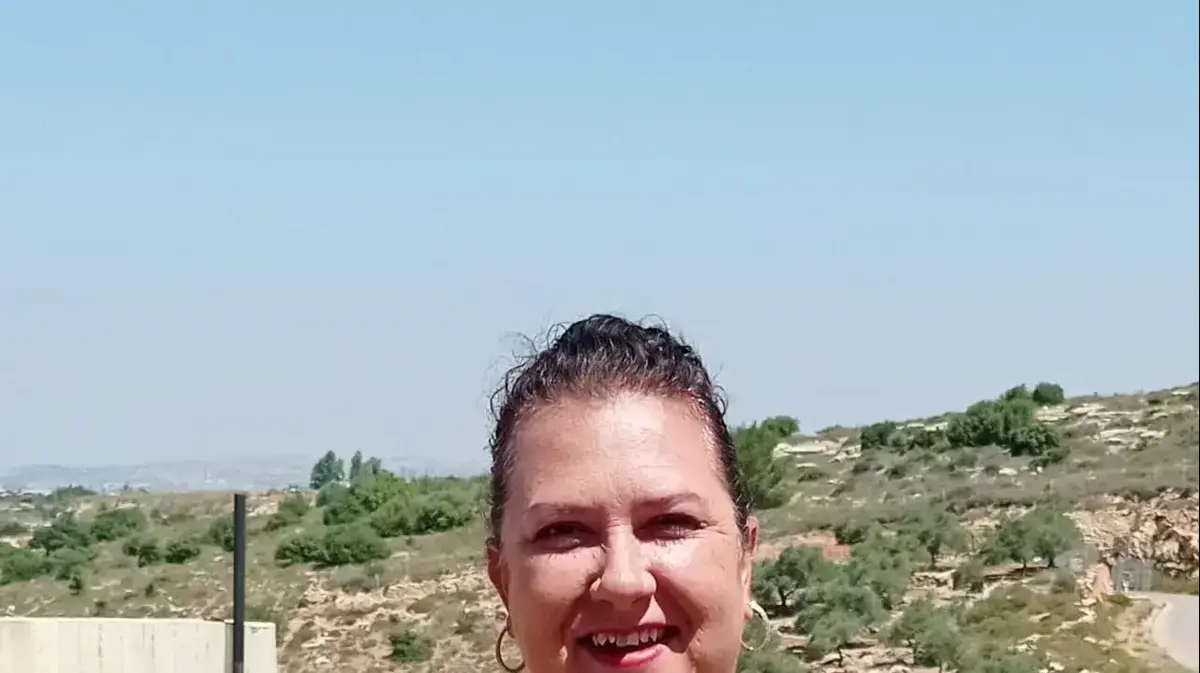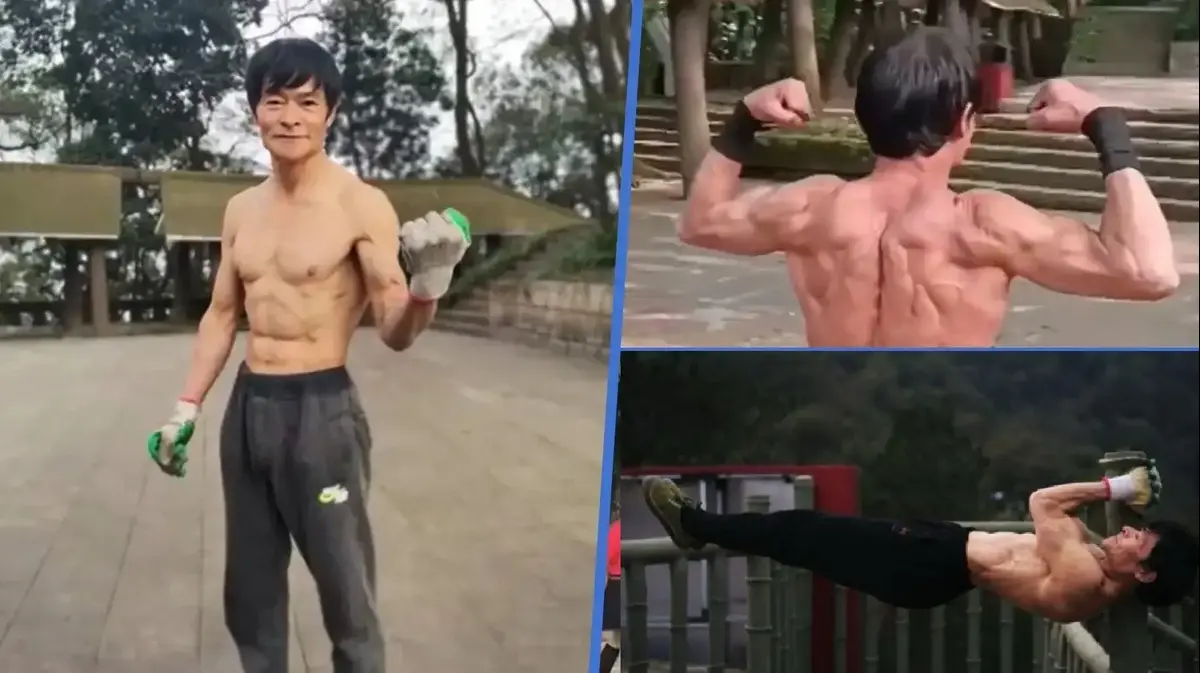"Just don't feel sorry for me." Liat Azoulay (Photo: courtesy of those photographed)
I wasn't always visually impaired, I traveled the world, I drove a car (and a scooter!), I was on the move, and I loved hanging out with friends. I lived life like everyone else. You could say that my life changed about 15 years ago, when I was about 30 years old. I noticed that at night I see less well. At first I thought it was temporary, maybe related to fatigue, lack of sleep, I didn't attach too much importance to it.
But after quite a long time, when I realized that things were only getting worse and worse, I decided to go for tests. The diagnosis was immediate—"You have RP," the doctor said, and I hurried home, to my computer and Dr. Google, to figure out what it was all about.
Retinitis pigmentosa, it is called in medical Hebrew, and is the name of a group of hereditary diseases that damage the retina. This is a group of rare diseases. Its prevalence worldwide is 1 in 5,000 people, but in Israel its prevalence is higher: one patient per 2,100 people. I'm a rare woman, I thought to myself.
The bottom line in the online explanation – the eyesight of someone with retinitis pigmentosa has been deteriorating over the years – didn't worry me then, 15 years ago. On the contrary, the diagnosis actually reassured me that I was not hallucinating and that there was a name for what was happening to me. The many difficulties that come with the disease, I will begin to experience later.
Only 4 degrees of vision
In general, the issue of times in this disease is very significant. As time passes and the disease deteriorates, vision also decreases. While the field of view of a healthy person is about 160 degrees, for me today it is only a little over 4 degrees. The rate of deterioration of the disease for me is quite constant and once in a while I feel that another degree of vision has decreased, and as you understand, every degree in this situation is dramatic.
How do you live with a 4 degree range of vision? Good question. Walking down the street is an almost impossible task, especially since the sun blinds me in such a way that sometimes I lose my sight completely, not to mention that many times I don't notice the stairs or even the sidewalk that ends into a road. At night, the situation is even worse, and I can't manage myself outside, I have to be accompanied by a lady.
I stopped identifying places, and don't talk to me about new hiking trails that are unfamiliar to me, it will surely end up falling or getting stuck in unruly columns. The ability to recognize colors has also been impaired, and the children at home help me match a sock to a sock in folds.
In general, conduct at home is problematic. If my husband or kids aren't there, I can look for a phone charger or remote for an hour or more. In order to be able to lead my life at home in a reasonable way, I need everything to be organized and in place. It's not easy when you live under one roof with three messy men. But help will always come from my husband, who operates the computer and other technical devices for me that you all use every day without even thinking. He often also helps me identify people and makes sure to whisper in my ear who I'm facing.
Not asking for discounts, despite the disability
It took many years before I came to the realization that this is the situation, and it is possible to live with it. In the early years there was a lot of anger and sadness. I asked myself more than once - why me out of 2,100 people? There was also a lot of self-pity and grief, but real grief for the sight that was lost and will not return. But the passage of time and the relatively slow deterioration in the situation cause you to come to insights and acceptance that this is what is happening and you have to find the best more than there is. I'll admit, it's not always easy.
But I don't give up so easily. By this time I had completed my bachelor's degree in psychology, moved from Tel Aviv to the Jerusalem area, and began working in the field of mental health, first as a mentor and then as an employment coordinator for the mentally ill at Bayit Cham. In the field of employment, I have always been firm and serious, with a strong work ethic. Does not ask for discounts, despite the limitations, and demands to be equal among equals. Three years after I joined Bayit Cham, in which I accompanied patients and assisted them in the process of rehabilitation and integration into work, I was offered to manage the Jerusalem and southern regions, and of course I took the challenge with great joy. I remember that period as the best of my life. Driving to the south was part of the fun experience of the work, the spectacular scenery, the spaces, the transfer of knowledge and the empowerment of the coordinators below me. I felt freedom.
At the same time, I met my husband, got married and had a son. But my vision was already getting smaller, and despite the danger on the road, for me and others, it was hard for me to give up my freedom, my "legs." Until one day a boy crossed the street and I didn't see him. It didn't end in disaster, luckily, but at that moment I handed over the keys to my dear husband's exclusivity and started getting around by public transport. It was the most dramatic change for me ever since.
More in Walla!
How do you turn plastic packaging into a potted plant?
In cooperation with Tamir Recycling Corporation
Adapt, make it accessible, nothing more
After the birth of my second son, I already felt that the many trips to all parts of the country were no longer suitable for me, three hours by bus each way, every day, was possible but tiring, with two small children at home and at the same time studying for a master's degree in nonprofit management with a specialization in mental health and disabilities.
Luckily, my manager at Bayit Cham always saw my abilities pushed forward, and was attentive to my needs. I am currently recruiting and training new coordinators who are hired, writing and developing content, I have taken a social media management course and I manage the organization's pages, including content writing and creative, and am responsible for other projects.
Why am I sharing my personal life details with you? So that you, too, will know the difficulties faced by people with disabilities. And no, pity is exactly what you shouldn't be demonstrating to. I ask for equality and seeing the needs of the other and the different. Adapt, make it accessible, nothing more. With the rest, we will already cope. Just give us a chance to do it. And respectfully.
- health
- news
Tags
- blindness
- Color blindness
- Blind
- Vision







